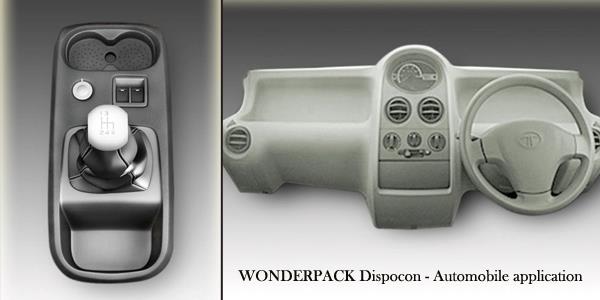Plastics in the Automobile industry A steady increase in the use of plastics are seen in the car manufacturing industry since 19th century Infact plastics are now the most widely specified material On an average 100 kgs of plastics replaces 200 300 kgs of conventional material reducing fuel consumption by 750 litres over a life span of 150 000 kms This even reduces CO2 emissions by Approx 10 Plastics made bumpers are up to 10 2 kgs lighter engine covers are 4 2 kgs lighter fuel tanks 5 kgs lighter The vital contribution of plastics will help the automotive industry meet the environmental challenges The automotive industry is thus approaching an era that may revolutionise its use of materials thus decreasing the weight of the automobile in order to reduce fuel consumption consequently emissions

"Plastics in the Automobile industry" -
A steady increase in the use of plastics are seen in the car manufacturing industry since 19th century. Infact plastics are now the most widely specified material.
On an average 100 kgs of plastics replaces 200-300 kgs of conventional material , reducing fuel consumption by 750 litres over a life span of 150,000 kms. This even reduces CO2 emissions by (Approx) 10 %.Plastics made bumpers are up to 10.2 kgs lighter, engine covers are 4.2 kgs lighter & fuel tanks 5 kgs lighter.
The vital contribution of plastics will help the automotive industry meet the environmental challenges. The automotive industry is thus approaching an era that may revolutionise its use of materials,thus decreasing the weight of the automobile in order to reduce fuel consumption, & consequently emissions.








Nature Vs Future! Gen Y dress created from..